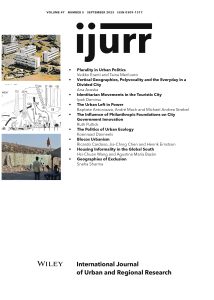Informal settlement growth in various countries has led to distinctive actions that enhance low-income populations’ accessibility to adequate, safe and affordable housing and basic services. This trend indicates the need for comparative studies between countries and cities to understand the factors that lead to policy learning opportunities. We conducted an experimental comparison between Accra, Ghana, and Buenos Aires, Argentina, to understand, first, how policies on informal settlements have been formed, and secondly, what inquiries should be made to address housing informality in the global South. A comparison shows that these cities/countries have shared moments of neoliberalization and that their poor residents have experienced similar struggles regarding housing availability and the pursuit of extensive governmental interventions. Therefore, their experiences are worth examining. Our comparison indicates that first, Buenos Aires/Argentina has adopted more inclusive policies regarding informal dwellers than Accra/Ghana, and secondly, that diversifying housing solutions are an inevitable dynamic in cities/countries experiencing a surge in housing pressure across classes, races and geographies. In this article we articulate how the governments of these countries have dealt with these challenges and conceptualize the coproduction needs of housing informality in developing countries. We encourage policymakers facing informality in the South to respond to the questions we raise about facilitating policy learning.
Details
Written by:
Hsi-Chuan Wang & Agustina María Bazán
Digital Object Identifier (DOI)
10.1111/1468-2427.13201
About DOI

